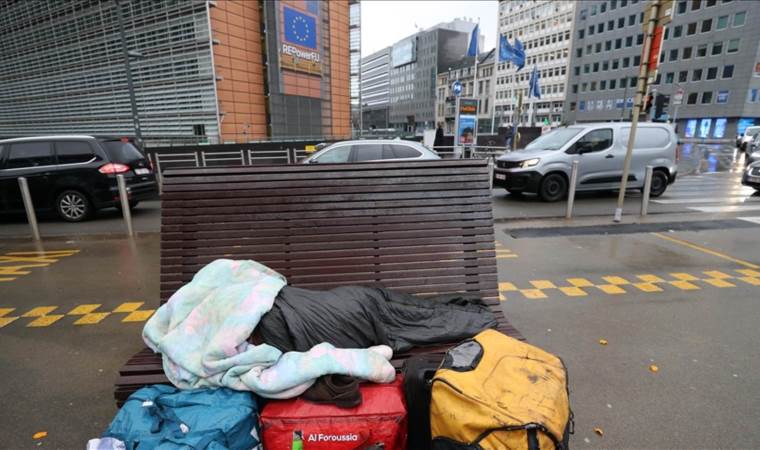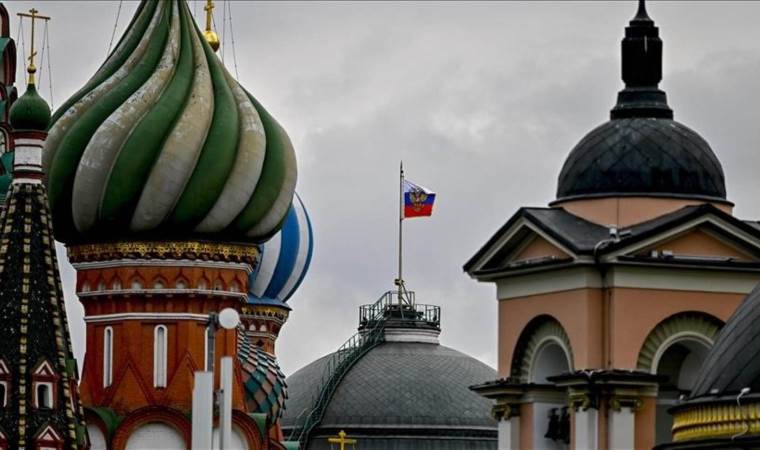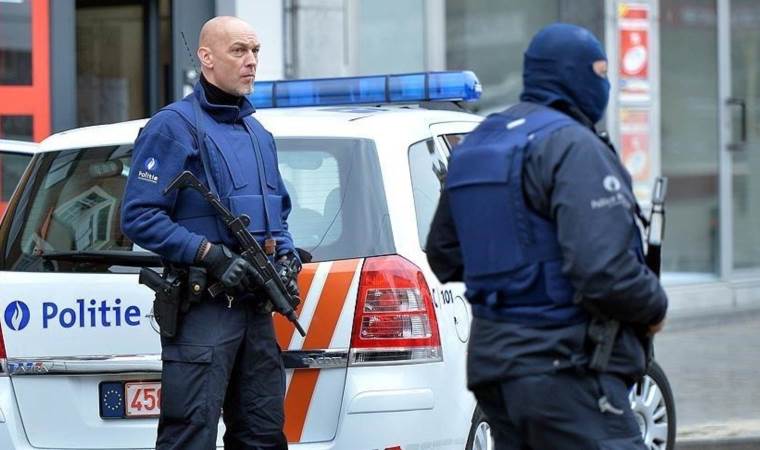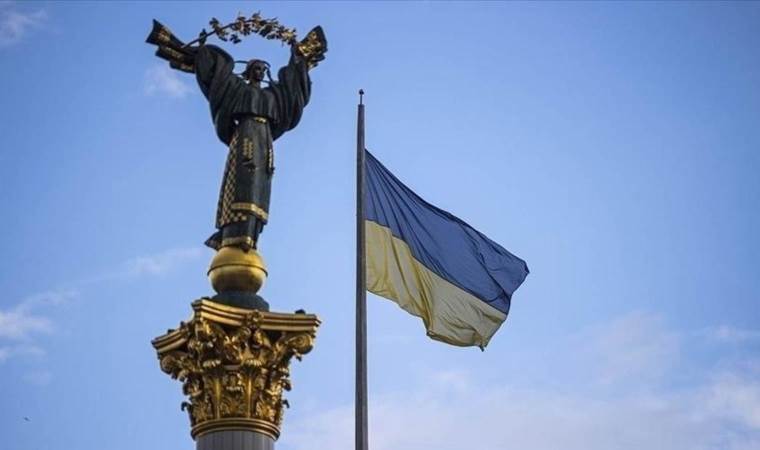China’s new power players aim strategic global space
Concentrating power and appointing loyalists in top decision-making body means full control for Chinese President Xi Jinping, but a stronger international pushback as well.

As the Chinese Communist Party ended its 20th Congress with the vow to face challenges at home with a ?ghting spirit, and to seize strategic opportunities in a shifting global balance of power, it also unveiled a new structure in the party with long term effects.
The 2,300 delegates, who had gathered at Beijing’s Great Hall after five years endorsed the new Politburo Standing Committee (PSC), a seven-member group that represents the apex of political power in the country and the 24-member politburo, which oversees the Chinese Communist Party. The PSC is a centralized core group within the politburo.
While Zhao Leji and Wang Huning retained their membership, four new faces, Li Qiang, Cai Qi, Ding Xuexiang, and Li Xi, were nominated to take the seats at the PSC. Many changes were also made at the Politburo.
With President Xi Jinping, 69, securing a historic third term as the Communist Party’s leader, emerging as the nation’s most influential ruler since Mao Zedong, the new PSC has been packed with loyalists, according to Dexter Tiff Roberts, a senior fellow at the Asia Security Initiative of the Scowcroft Center for Strategy and Security and an expert on Chinese affairs.
Xi was also named the chairman of the Central Military Commission, making him the first in Chinese Communist Party politics with so much power in hand. Ananth Krishnan, who writes for India’s leading newspaper The Hindu from Beijing describes this as an unprecedented clean sweep, keeping in view that in the past, powers were usually shared between different party factions.
Besides holding the position of the president, Xi is now the general secretary of the Chinese Communist Party, the head of both the PSC and Politburo, the chairman of the Chinese Communist Party’s Central Military Commission, and the chairman of the Central Military Commission of the People's Republic of China. There are technically two offices with the same name.
Experts believe not only that Xi has put his marks on the newly constituted PSC and Politburo, but the underlining message is that he will play a guiding role and steer his political thoughts within the party with much ease over the next five years.
Promotions
Among other appointments, Foreign Minister Wang Yi (69) was promoted to the Politburo, which means that he will take over from retiring Yang Jiechi, who is currently serving as the director of the general office of the Central Foreign Affairs Commission, the highest diplomatic position in the country.
Current Ambassador to the US Qin Gang was promoted to the Central Committee, and will soon take over Wang’s position as the country’s foreign minister. He is also believed to take the position of special representative as well to negotiate border disputes with India. Another appointment to the Politburo was Liu Haixing, the assistant foreign minister and an expert on European affairs, a crucial appointment in the wake of the Russia-Ukraine war and diplomatic focus on Europe.
Gen. He Weidong (65) was named the new vice chairman of the Central Military Commission. He is believed to have been rewarded for his active involvement in leading the army in the Western Theatre Command, which borders India, during a period of heightened tensions.
The absence of any woman and the exclusion of Hu Chunhua, one of China’s vice premiers, former Xinjiang party secretary Chen Quanguo and moderate faces like Li Keqiang and Wang Yang from the decision body has raised considerable eyebrows across the globe.
While Hu was once widely viewed as a candidate for top leadership, Li and Wang were perceived to play long innings in the Communist Party’s top bodies due to their young age. Both had served at the Communist Youth League, a once-influential group that experts say has lost power under Xi.
New members
Among the new members of the PSC, Ding Xuexiang, Xi’s 60-year-old private secretary, is the youngest. Known as a gatekeeper -- as everybody had to pass his scrutiny before meeting Xi -- he is heading the Central Committee’s powerful General Office, which manages the administrative affairs of the top leadership. Though, sixth in rank, he is believed to play a more crucial role in the corridors of power in Beijing in the future and is a man to be watched closely.
According to China Daily, he moved up the ranks of the party apparatus in Shanghai, and became the secretary of the Political and Legal Committee of the Shanghai Municipal Party Committee at the 18th Party Congress in 2012, and was elected to the Central Committee as an alternate member.
Li Qiang, 63, who has studied agriculture mechanics as well as sociology, was seen as a rising star in Chinese politics, although it was believed that the lockdown in Shanghai has dented his image. He has returned with the promotion to the PSC. He has been also named the premier-designate at the Congress. He is set to take office in March 2023.
Zhao Leji, 65, is the third-ranking member of the PSC and is expected to become the chairman of the PSC in March 2023. He was already serving in the apex body since 2017. He was also the secretary of the Central Commission for Discipline Inspection, the party's highest internal-control institution that has been noted for executing Xi's anti-corruption campaign.
Wang Huning, 67, has also been a member of the PSC since 2017. He is believed to be the chief ideologue of the Communist Party and the principal architect behind the official political ideologies and has held significant influence over the policy and decision-making of three leaders -- Jiang Zemin, Hu Jintao, and Xi Jinping. Since he has been seen accompanying Xi on his foreign trips frequently, it indicates his influence on Chinese diplomacy.
International pushbacks
Cai Qi, 67, the fifth-ranking member of the PSC is known for his extensive use of social media and unorthodox approach to governance, according to South China Morning Post. He was responsible for leading the Communist Party Secretary in the capital Beijing. In June 2020, he led the team to eliminate coronavirus in Beijing’s Xinfadi market.
Li Xi, 66, the seventh-ranking member of the PSC is currently the secretary of the Central Commission for Discipline Inspection. Soon after he was named a member of the Politburo at the 19th Party Congress, in 2017, he took over the politically important southern province of Guangdong as the provincial party secretary. He has also served as the deputy party secretary of Shanghai, then as the governor of Liaoning province, before he was promoted to the party secretary position.
Analysts say that while Xi’s full control means his team will be fully responsible for any policy decisions and also mistakes, it may also provoke stronger international pushbacks.
“His autocracy may provoke stronger international pushback from the US-led Western countries. All of these scenarios will make his third and likely fourth terms not as easy as expected,” says Yang Zhang, a professor at American University’s School of International Service in Washington.
Seven-member Politburo Standing Committee, in order
1. Xi Jinping 2. Li Keqiang 3. Zhao Leji 4. Wang Huning 5. Cai Qi 6. Ding Xuexiang 7. Li Xi
Politburo members
1. Xi Jinping, 2. Li Keqiang, 3. Zhao Leji, 4. Wang Huning, 5. Cai Qi, 6. Ding Xuexiang, 7. Li Xi, 8. Ma Xingrui, 9. Wang Yi, 10. Yin Li, 11, Shi Taifeng, 12. Liu Guozhong, 13. Li Ganjie, 14. Li Shulei,15. Li Hongzhong, 16. He Weidong, 17. He Lifeng, 18. Zhang Youxia, 19. Zhang Guoqing, 20. Chen Wenqing, 21. Chen Jining, 22. Chen Miner, 23. Yuan Jiajun, 24. Huang Kunming
Most Read News
-
 US judge finds probable cause to hold Trump officials in
US judge finds probable cause to hold Trump officials in
-
 Naval chiefs of South Korea, US, Japan discuss trilatera
Naval chiefs of South Korea, US, Japan discuss trilatera
-
 Germany maintains diplomatic boycott, bars Russia from W
Germany maintains diplomatic boycott, bars Russia from W
-
 Trump administration asks Justice Department to probe NY
Trump administration asks Justice Department to probe NY
-
 Nearly 10,000 people homeless in Brussels, up 25% since
Nearly 10,000 people homeless in Brussels, up 25% since
-
 Kremlin says Europe focused on war while Russia awaits p
Kremlin says Europe focused on war while Russia awaits p
-
 Overnight shooting in Brussels leaves 2 injured, with 1
Overnight shooting in Brussels leaves 2 injured, with 1
-
 US federal community service program staff placed on lea
US federal community service program staff placed on lea
-
 UN says 500,000 displaced in Gaza after Israel resumes a
UN says 500,000 displaced in Gaza after Israel resumes a
-
 Top Ukrainian delegation arrives in Paris for talks with
Top Ukrainian delegation arrives in Paris for talks with










